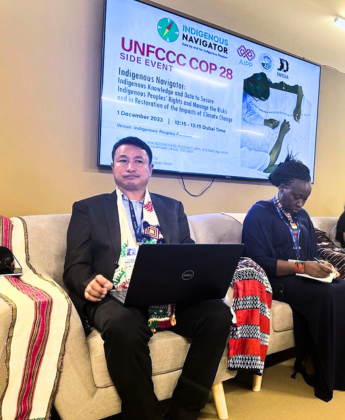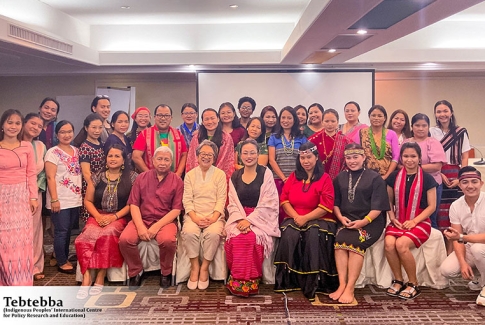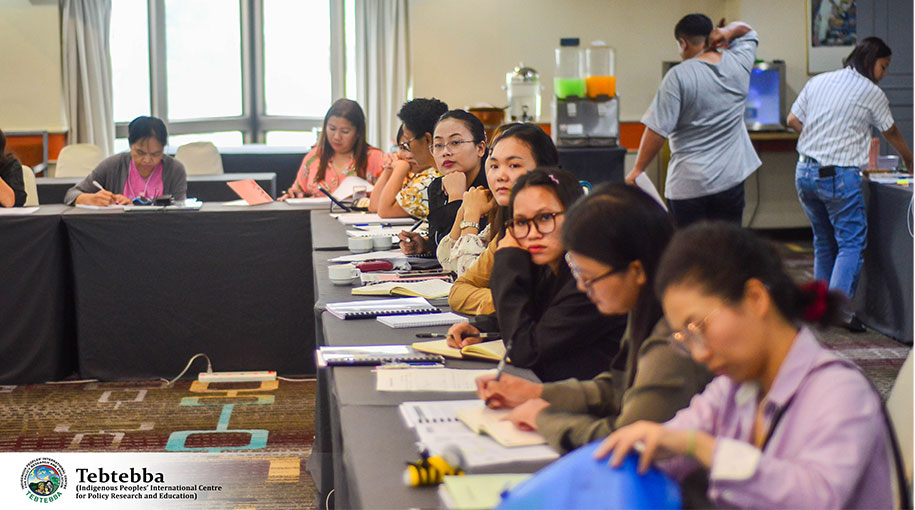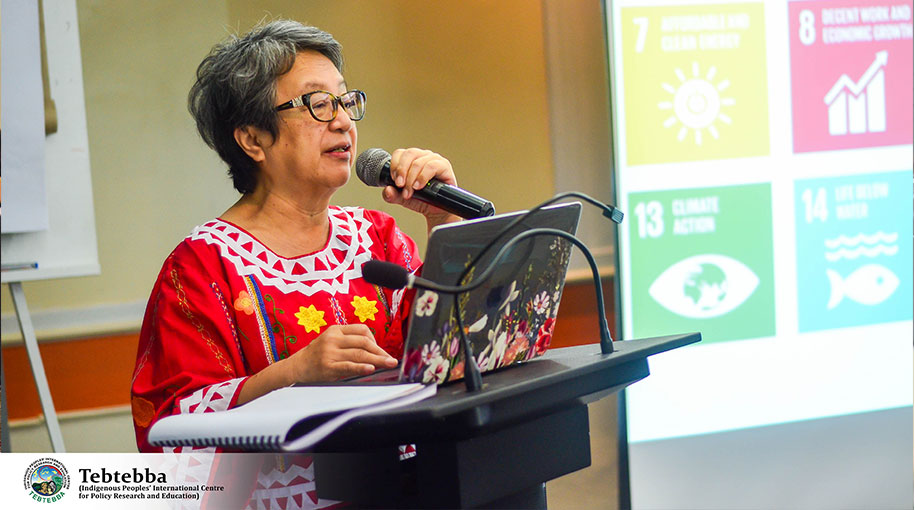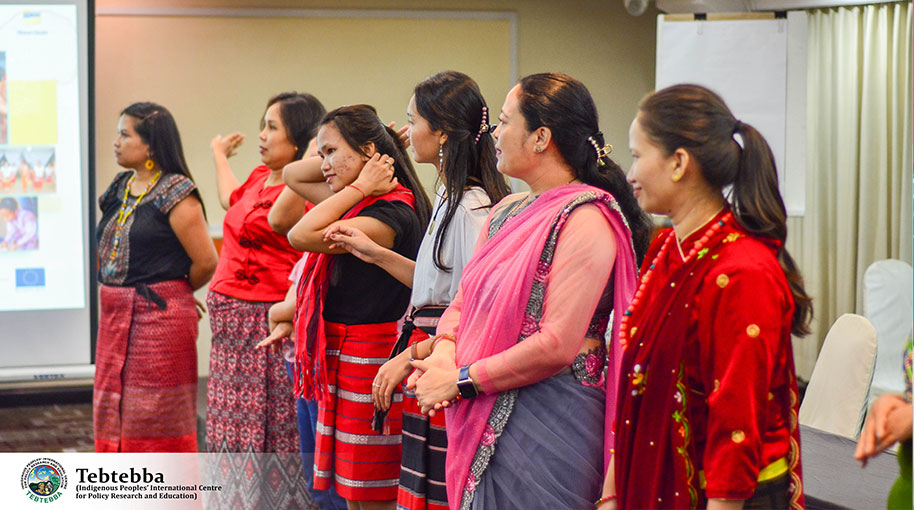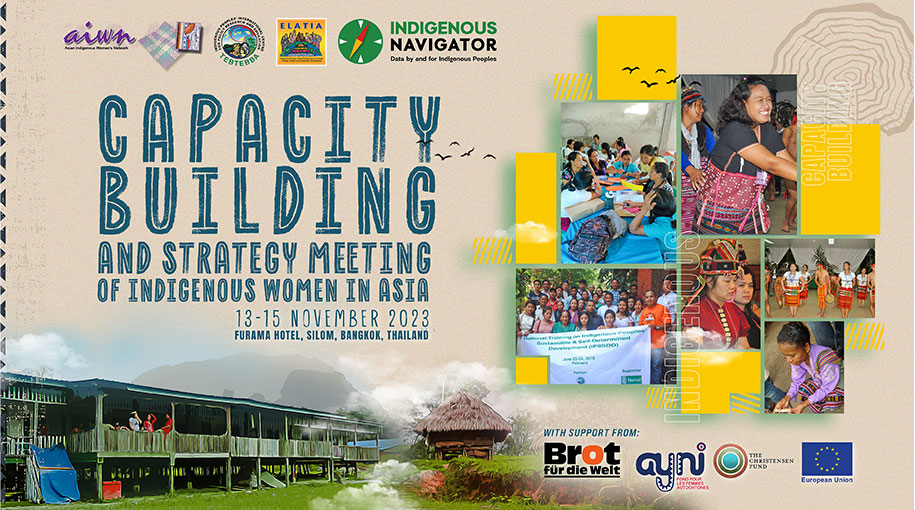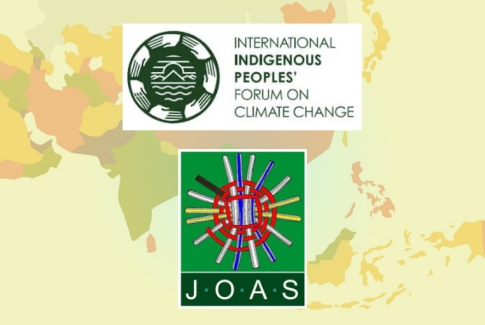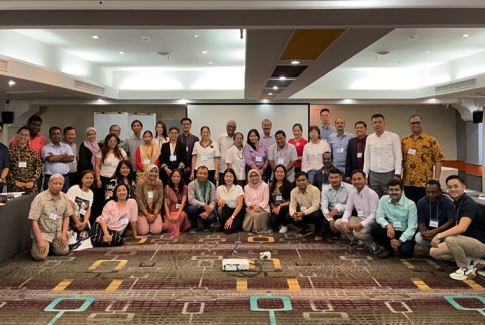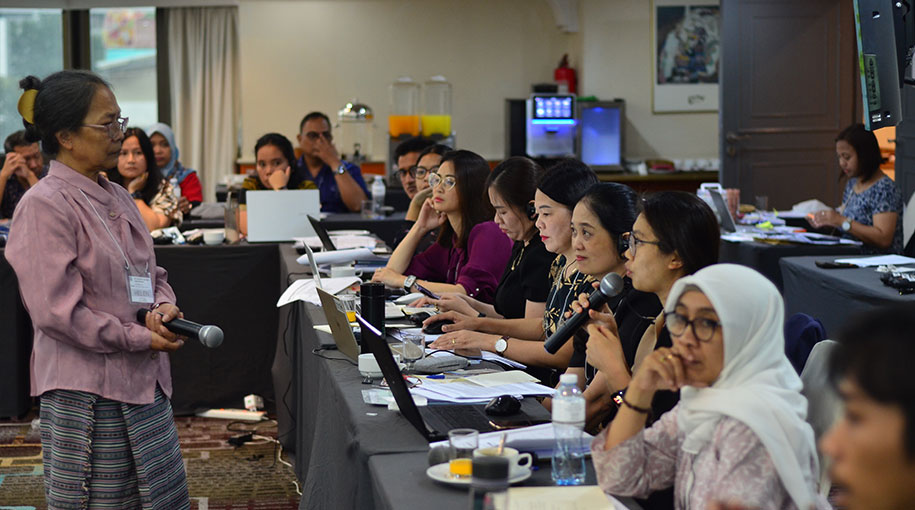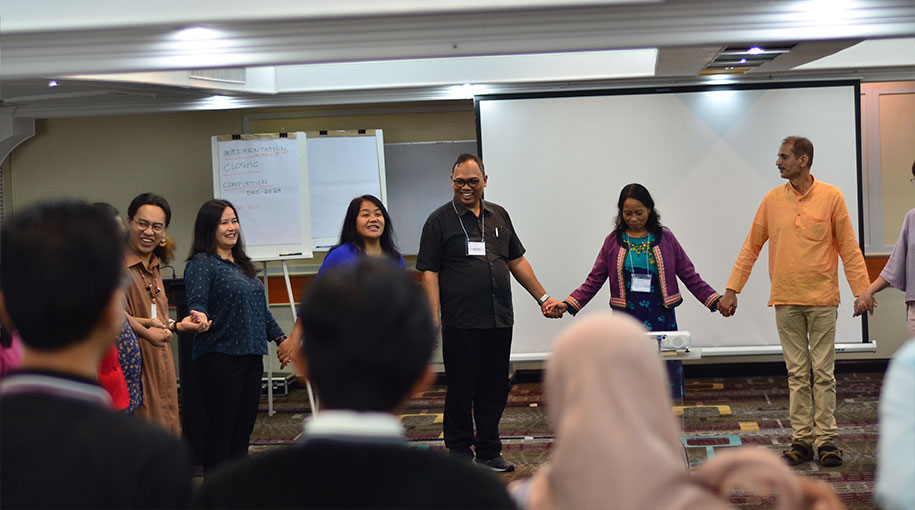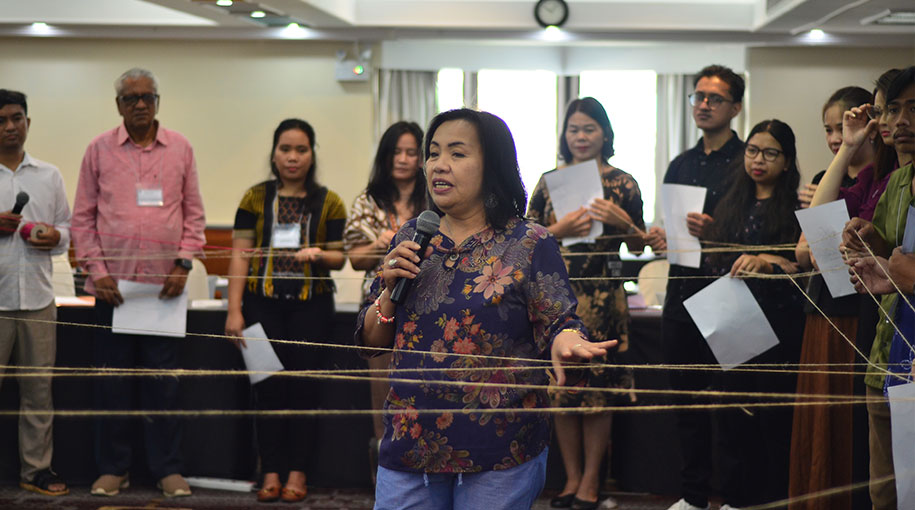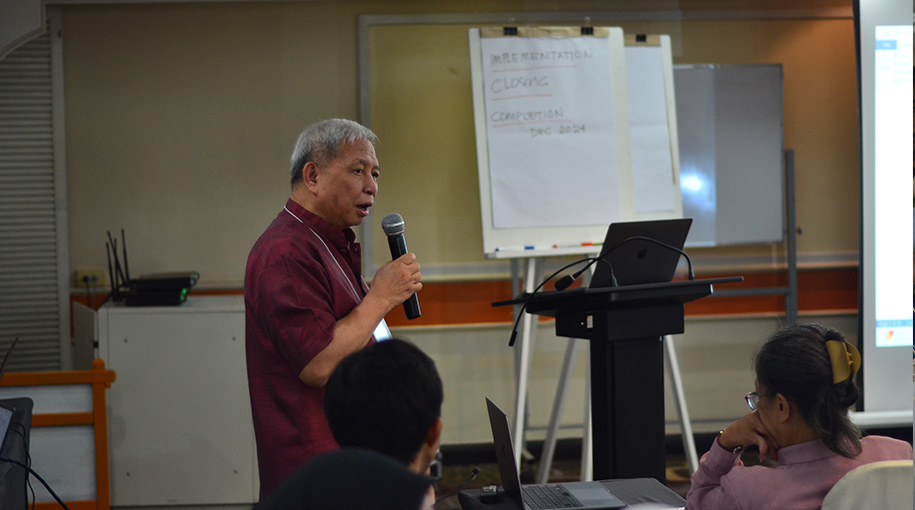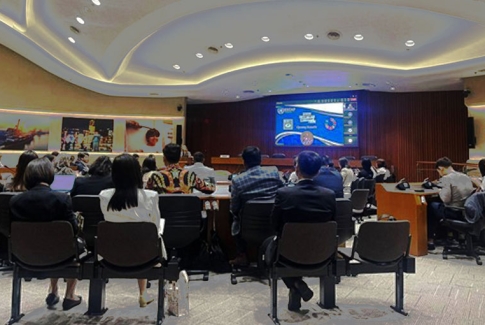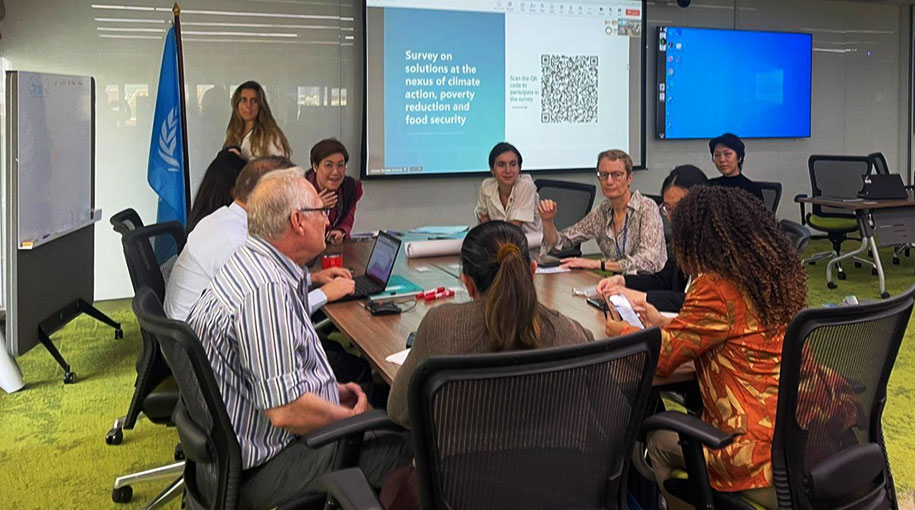
"Indigenous knowledge is very crucial in making solutions and managing the risks of climate change, biodiversity, and the Sustainable Development Goals (SDGs)."
Shohel Hajong, program officer at the Asia Indigenous Peoples Pact (AIPP), who served as a moderator of the Indigenous Navigator (IN) side event at the Indigenous Pavilion of the Indigenous Peoples' Forum on Climate Change during the Conference of Parties (COP) 28 of the United Nations Framework on Convention on Climate Change held from December 1-12, 2023 in Dubai, United Arab Emirates highlighted the important role that indigenous peoples play in the key worldwide concerns.
Shohel opened the event by introducing the IN as a community monitoring framework by and for indigenous peoples where indigenous communities are very involved in the process of collection and comparison of community-generated data at local and the national level, making implementation gaps visible. Launched in 2014, the IN monitors the implementation of international instruments including but not limited to the United Nations Declaration on the Rights of Indigenous Peoples (UNDRIP), outcome of the World Conference on Indigenous Peoples (WCIP), and relevant Sustainable Development Goals (SDGs). At present, the IN is being implemented in more than 28 countries in Africa, Asia and Latin America.
Indigenous Navigator Country Implementation
Yun Mane of the Cambodia Indigenous Peoples Organization (CIPO) shared the result of their community questionnaire that revealed that indigenous communities in their country suffer from the impacts of deforestation. Additionally, the communities suffer from investors of mining, dams, and socio-tourism projects granted by the government as they take timber to sell, destroy delicate soil, and clear the forests which cause an increase in weather unpredictability, extreme flooding and drought. This, then, is where IN comes in not just to monitor if the commitments of states are being implemented but also as evidence to advocate for the promotion and protection of indigenous peoples’ rights.
"This (Indigenous Navigator) is a very important document for us, indigenous peoples, as well as [for] the government because it is an evidence-based document [that] you can use to monitor our rights that have been stipulated in the UNDRIP and also in other conventions like the Convention on Biological Diversity (CBD) and the Sustainable Development Goals (SDGs),” Mane stressed.
In Nepal, Manoj Rai of the Lawyers' Association for Human Rights of Nepalese Indigenous Peoples (LAHURNIP) recommended that states should commit to climate funds, increase protected areas, and data disaggregation to record on-the-ground experiences of indigenous peoples. Additionally, Rai urged duty bearers to use the IN to fulfill the data gaps and add more resources to gather information from more areas, obtaining the real situation of indigenous communities. "[The] Indigenous Navigator is a powerful tool to use for advocacy," he concluded.
"This (Indigenous Navigator) is one of the projects that needs replication. Data collectors learn more about their rights and the situation of their own communities while speaking their own language," said Anne Samante of Mainyoito Pastoralists Integrated Development Organization (MPIDO) in Kenya. Samante highlighted that for the longest time that Indigenous rights have been violated, there is a lack of evidence and that the IN gave them the opportunity to not just have proof of violations but also to use the data for advocacy as well as open dialogues with the state and other stakeholders. Anne also mentioned that the IN under its Small Grants Program gave indigenous communities the freedom to choose the development project they wanted based on their specific needs and priorities.
"We say that knowledge is power. Knowledge becomes [a] more significant power if we find ways to utilize it [while] ensuring [that] our rights [are respected]," emphasized Chadra Tripura, an indigenous youth from Bangladesh. She highlighted the need to transfer the traditional knowledge to the next generations especially with regards to the contributions of indigenous peoples to solving global problems including climate change. As an indigenous youth, Tripura shared that as young people nowadays live in the technological era, they take the burden of protecting their traditional knowledge and adapting to modern knowledge. "They (states) must include indigenous youth in decision making in policies," Chandra strongly recommended.

Ketty Marcelo from Organización Nacional de Mujeres Indígenas Andinas y Amazónicas del Perú (ONAMIAP) also shared their experience in implementing the Indigenous Navigator in Latin America where displacements of indigenous peoples are happening due to development projects that also destroy the environment. Marcelo also shared that at first, they found the IN tool hard to understand, but that gradually they learned to adopt it in relation to their own realities. Through the tool, they were able to collect data showing the violation of their rights as enshrined in the UNDRIP. Through the findings, Ketty shared that they were able to write a report that provided information on the violations and situations they were experiencing which they then presented to the United Nations Special Rapporteur on the Rights of Indigenous Peoples. Additionally, Ketty highlighted the need to re-echo the data back to the community it came from so they can be aware of their rights, situations and priorities.
IN as monitoring and advocacy tool
Nicky Batang-ay from the Climate and Biodiversity Program of Tebtebba shared that along with the IN, they also implement the Community-Based Monitoring and Information Systems (CBMIS) - both are monitoring tools used by and for indigenous peoples. Since the implementation of these initiatives, Nicky revealed that they learned three fundamental points: One is the “timeless wisdom and modern approach” where he highlighted that since time immemorial, indigenous peoples have been monitoring their well-being as well as their surroundings including climate issues. "The good thing [about] IN [is that] it helps indigenous communities systematically organize the data that they have been gathering from the ground," he said. Second is the “dynamic role of indigenous data” not only for realization of indigenous rights but also for coming up with a comprehensive plan appropriate for their community. Third, empowering indigenous peoples through education where training on collecting data is stressed as well as the capacity to manage it.
"Indigenous Navigator is a tool for ground-truthing… The IN is a tool to bring indigenous specific data to the table of policy- and decision- making," said Kimaren Ole Riamit of the Indigenous Livelihood Enhancement Partners (ILEPA) as he gave the concluding remarks of the side event. Kimaren challenged partners, states, and civil society and organizations to connect across spaces and across networks to come together to deliver the aspiration of humanity for a better world and a better people tomorrow.
This side event was co-organized by Asia Indigenous Peoples Pact (AIPP), Tebtebba, International Work Group for Indigenous Affairs (IWGIA), and the Indigenous Navigator consortium funded by the European Union. ###


